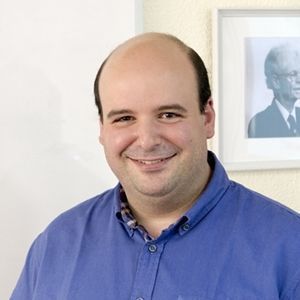Empowering psychological interventions by incorporating cutting-edge RFT research

.jpg)

Sunday, 13 June 2021 - 2:00 p.m. to 6:00 p.m. UTC/GMT +2 (Central European Summer Time)
This workshop aims to introduce the basics of Relational Frame Theory (RFT) and the implications of “cutting-edge” Clinical RFT research. The workshop will be divided into three parts. In Part 1, we will present the basic concepts of RFT through multiple clinical examples. In Part 2, we will present an RFT conceptualization of self-as-context and defusion and how it can be used to empower the exercises and clinical interactions aimed at moving these processes. Lastly, in Part 3, we will present recent research in the RFT conceptualization of worry and rumination and how it can be used to develop briefer ACT interventions. Multiple experiential exercises and role-plays will be presented across the four parts of the workshop to develop skills in Clinical RFT
About Francisco J. Ruiz, Ph.D.:
Francisco J. Ruiz received his doctoral degree in Psychology in Universidad de Almería (Spain) under the supervision of Dr. Carmen Luciano in 2009. He worked in several Spanish universities before accepting a professor position in Fundación Universitaria Konrad Lorenz (Colombia) in 2015. In this position, he designed one of the first Ph.D. programs in Psychology in the country and has been awarded as a “Distinguished Researcher” of the institution. He has published about 70 scientific articles focused on Acceptance and Commitment Therapy (ACT) and Relational Frame Theory (RFT). During the last few years, he and his colleagues are developing a model of ACT that focuses on dismantling dysfunctional patterns of repetitive negative thinking (RNT). This model incorporates previous research on Clinical RFT and new empirical developments.
About Louise McHugh, Ph.D.:
Louise McHugh, Ph.D., is associate professor of psychology at University College, Dublin; has published over 90 papers in the area of Contextual Behavioural Science; is a peer-reviewed acceptance and commitment therapy (ACT) trainer; fellow of the Association for Contextual Behavioral. Science; author of A Contextual Behavioral Guide to Self and coeditor of The Self and Perspective Taking.
About Bárbara Gil-Luciano, Ph.D.:
Barbara Gil-Luciano is a Ph.D. in Psychology and an ACT therapist with adults and adolescents. She trains in ACT in the Madrid Institute of Contextual Psychology (MICPSY) and Nebrija University. She has authored multiple publications in ACT and Clinical RFT.
Learning Objectives:
Following this workshop participants will be able to:
- Describe the clinical implications of the three properties of relational framing.
- Describe the relational framings involved in self-as-context and defusion processes.
- Design enhanced self-as-context exercises according to recent RFT research.
- Design enhanced defusion exercises according to recent RFT research.
- Describe the central role of worry and rumination in psychological inflexibility.
- Design exercises to disrupt worry and rumination processes according to the RFT analysis.
Target Audience: Beginner, Intermediate, Clinical, Research
Components: Conceptual analysis, Experiential exercises, Didactic presentation, Case presentation, Role play
Package Includes: A general certificate of attendance
